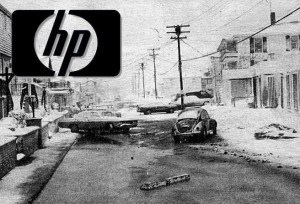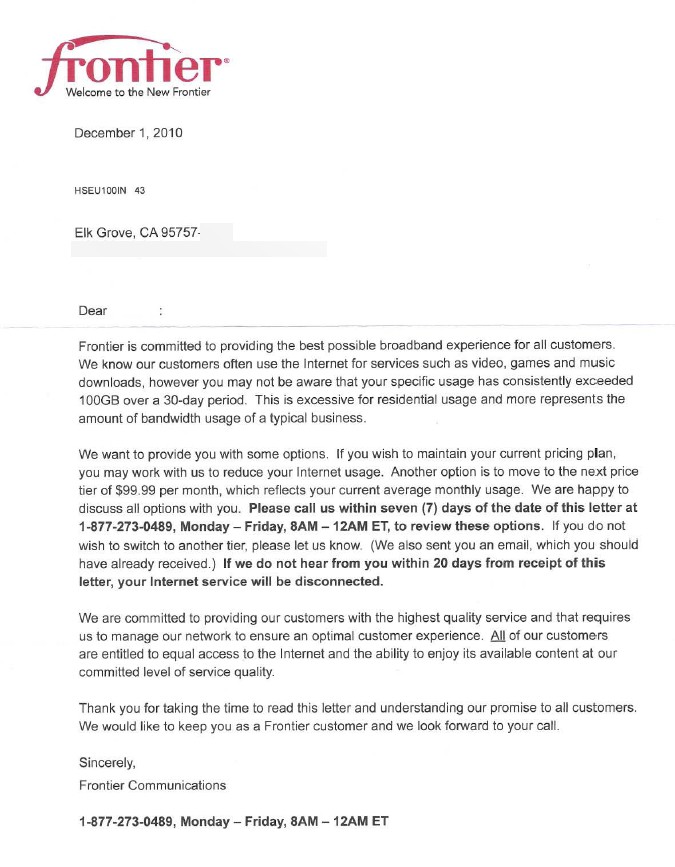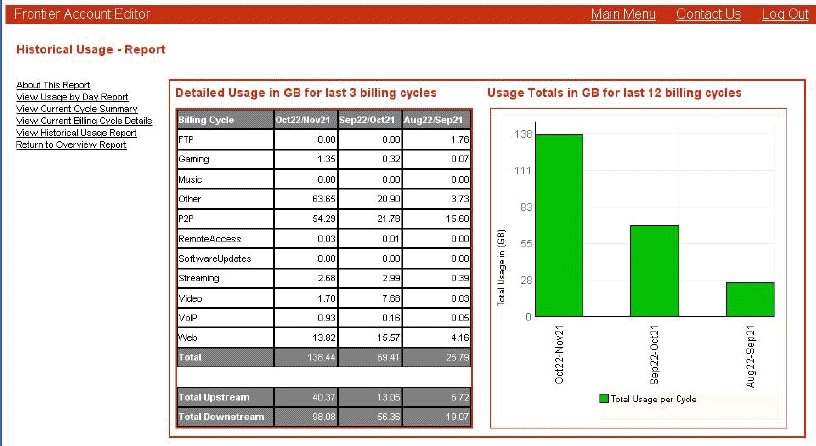 What would you do if your broadband bill was the same as your monthly rent?
What would you do if your broadband bill was the same as your monthly rent?
That’s a question 21-year-old Notre Dame de Grace resident Amber Hunter has been dealing with since the neighbors began hacking their way into her wireless router, gaining access to her cable modem service from Videotron, Ltd., and running her bill into the next province.
It’s the predictable outcome of what happens when Internet Overcharging schemes gain traction, leaving ordinary consumers literally holding the bill.
Videotron sells usage limited broadband service across Quebec, but heavy users who routinely exceed their arbitrary usage caps knew there was a limit on the overlimit fees Videotron charged.
Not anymore.
Videotron left the usage caps on, but removed the limit on how much they can charge customers who exceed their monthly usage allowance.
“The sky is the limit, or at least your bank account,” writes our Montreal reader Hei. “The only thing unlimited with Videotron are the overlimit fees.”
Hunter had no idea she was being hacked.
“I had no idea what a gigabyte was, so when I started getting higher bills, I just assumed it was from watching TV shows online,” Hunter says.
Her boyfriend told her otherwise, making it clear it was impossible for her to be running up 350GB a month in usage just from watching a few movies and TV shows.
Since August, Hunter has accumulated more than $1,800 in broadband bills stemming from parties unknown who hacked their way into her wireless router and “borrowed” her Internet account. Videotron itself is directly responsible for part of this debacle, encouraging Hunter to upgrade to a higher tier of service that upgraded her from a 30GB usage allowance to a 100GB usage allowance, with a major catch.
Hunter had become accustomed to paying her usual broadband bill plus the $50 maximum penalty charged for her “overuse.” So a Videotron representative suggested a higher usage allowance plan might lower her bill. But somehow, the Videotron customer service agent forgot to mention that the new plan no longer included a limit on overlimit charges.
When Amber switched plans, her broadband bill exploded. Now the waitress hands over most of her weekly salary to Videotron.
“I’m a student, and I work at a bar, and now most of the money I have goes to pay my Internet bill,” Hunter told the Montreal Gazette. “It’s more than I pay for school and books, and I don’t have a lot of money left for food.”
She still owes the cable company $506 and they aren’t interested in providing her any service credits beyond the $313 they gave her a few months ago.
It took a Videotron help desk employee to finally unravel the mystery of the Internet Overcharges — someone was hacking into her wireless network. Exactly who has been living their online life usage-limit free at Amber’s expense may never be known. Those living in apartment complexes and other multiple dwelling units can often find a dozen or more wireless connections, some password protected, others not.
Hunter’s wireless network was secured with a difficult to guess password using a four year old Linksys router. Unfortunately, older routers often lack robust security and are easily hacked.
As far as Videotron is concerned, it’s all Hunter’s fault — she should have understood what a gigabyte was, how many she was supposed to be using, what the security capabilities of her router were, that they were properly enabled, that she checked her usage on a daily basis looking for anomalies — investing her time, effort, and energy to stop the cable company before it billed her an enormous amount… again.
Speaking for Videotron, Isabelle Dessureault said, “It’s a case where Videotron showed some understanding and listened to what happened. We’re well-renowned in the industry for our technical support team. We credited her account for $313, but at a certain point, we need to share the responsibility. We don’t like these kind of situations.”
Videotron’s responsibility to their customers stopped where their profit margin began. The company could have sent Amber a bill for the wholesale cost of her Internet usage, which she could have paid with a few of her bar tips.
Because Hunter’s broadband bills were now rivaling her monthly rent she decided to invest in her financial future, buying a new router and making sure the wireless was turned off. Today she runs dozens of meters of Ethernet cable between all of her computers, just to keep the neighbors off her connection.
Although Videotron has become intractable, demanding Amber pay up, one of their competitors used the opportunity to score public relations points that Videotron sacrificed.
Jarred Miller, the president of the Internet Service Provider YOUMANO offered to cover all of Hunter’s overage fees amassed over the past year that also includes a free year of Internet service with his company, a generous offer Hunter will take.
YOUMANO is one of a handful of Canadian ISPs still offering unlimited Internet access, and do not think of themselves as the OPEC of the Internet.
The entire affair is a warning to Americans. If you think Videotron is an Internet evildoer, imagine what Verizon, AT&T and Comcast could do to your bank account. If they have their way, you’ll need to become intimately familiar with your router, the concept of a gigabyte, and take a class in “negotiating to win” when fighting over your future enormous broadband bills.
Listen to an interview with Amber Hunter. She appeared on this morning’s Daybreak on CBC Radio Montreal to discuss her experience with Videotron Internet Overcharging. (8 minutes)
You must remain on this page to hear the clip, or you can download the clip and listen later.


 Subscribe
Subscribe











